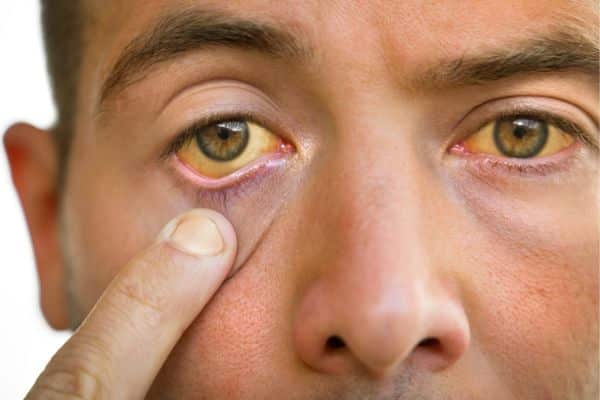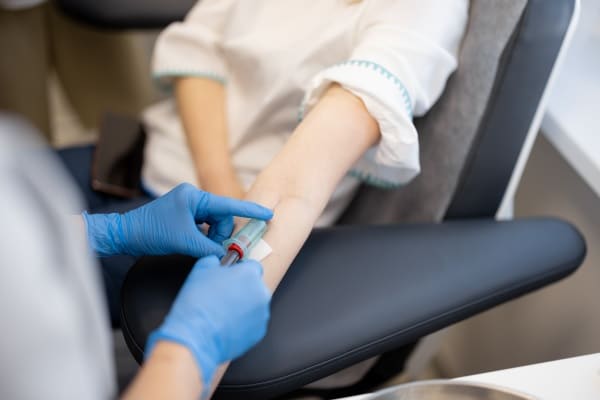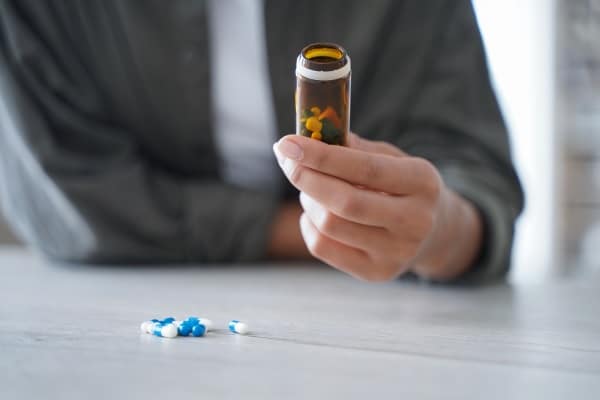Feeling persistently fatigued or noticing a yellowish tint in your eyes might be easy to dismiss as mere exhaustion or stress. However, these could be subtle indicators of liver damage, an issue that should never be taken lightly. The liver is a powerhouse organ responsible for a multitude of functions that keep your body running smoothly. This article aims to shed light on the symptoms of liver damage, its common causes, and why early detection is crucial. By the end of this read, you’ll be better equipped to recognize the signs and take proactive steps to maintain your liver health.
Contents
The Vital Roles Of Your Liver

The liver is not just another organ; it’s a multitasking marvel that plays a critical role in your body. From aiding in digestion to detoxifying harmful substances and storing essential nutrients, the liver is indispensable for maintaining your overall well-being. When it’s functioning well, you hardly notice it, but when it’s compromised, the consequences can be severe.
Understanding the liver’s roles can help you appreciate why keeping it healthy is so important. A damaged liver can lead to a cascade of problems, affecting everything from your energy levels to your skin’s appearance. Recognizing the symptoms of liver damage early on can be a lifesaver, literally and figuratively.
Common Causes Of Liver Damage

Liver damage doesn’t happen overnight; it’s usually the result of a combination of factors that accumulate over time. One of the most well-known culprits is excessive alcohol consumption, which can lead to liver inflammation and scarring. But alcohol is far from the only cause. Hepatitis infections, non-alcoholic fatty liver disease (NAFLD), and even certain medications can also wreak havoc on your liver.
Knowing the common causes of liver damage is the first step in prevention. If you’re aware of the risks, you can take measures to mitigate them. For instance, moderating alcohol intake, getting vaccinated against hepatitis, and being cautious with medications can all contribute to liver health. Awareness is the first line of defense against liver damage.
Early Warning Signs

If your liver could talk, it would tell you when it’s struggling. Since it can’t, it sends signals in the form of symptoms. Early warning signs like persistent fatigue, loss of appetite, and nausea might seem vague and easily attributable to other conditions. However, these could be your liver’s way of sounding an alarm.
Ignoring these early signs is a mistake you don’t want to make. Left unaddressed, these symptoms can escalate into more severe issues that are harder to treat. The sooner you recognize these signs and consult a healthcare provider, the better your chances of preventing irreversible damage to your liver.
More Serious Symptoms

When the liver is severely compromised, it sends out more alarming signals that are harder to ignore. Jaundice, characterized by a yellowing of the skin and eyes, is one such sign that should never be overlooked. Dark urine, pale-colored stool, and abdominal pain are other symptoms that indicate your liver is in distress and needs immediate attention.
Ignoring these symptoms can lead to catastrophic health outcomes. These are not mere inconveniences; they are red flags signaling that your liver is struggling to perform its essential functions. Immediate medical intervention is crucial at this stage to diagnose the underlying issue and initiate appropriate treatment.
Complications If Left Untreated

The consequences of untreated liver damage are dire and can lead to irreversible conditions. Liver cirrhosis, a scarring of the liver tissue, is one such complication that severely impairs liver function. Liver failure, another potential outcome, is a life-threatening condition that requires immediate medical intervention. An increased risk of liver cancer is also a grim possibility.
Timely diagnosis and treatment are critical to preventing these complications. The longer liver damage goes untreated, the more challenging it becomes to manage and treat the resulting conditions. Early detection can make a significant difference in treatment outcomes and quality of life.
Diagnostic Tests For Liver Damage

If you’re experiencing symptoms of liver damage, a healthcare provider will likely recommend a series of diagnostic tests. Blood tests, commonly known as liver function tests, are usually the first step. These tests measure levels of enzymes and proteins in your blood to assess liver function. Imaging tests like ultrasounds or CT scans may also be used for a more detailed view of the liver.
A liver biopsy may be recommended in more severe cases or when other tests are inconclusive. During this procedure, a small tissue sample is taken from your liver for microscopic examination. The results can provide valuable insights into the extent of liver damage and guide the course of treatment.
Treatment Options

Once a diagnosis is confirmed, treatment options will vary depending on the cause and extent of the liver damage. Lifestyle changes, such as adopting a balanced diet and regular exercise, are often the first line of defense. Medications may also be prescribed to manage symptoms and treat underlying conditions like hepatitis or fatty liver disease.
For extreme cases where the liver is severely damaged, surgical options may be considered. A liver transplant is usually the last resort and is reserved for cases of end-stage liver disease. While this is a complex and risky procedure, it can be life-saving for those with irreparable liver damage.
Lifestyle Choices To Protect Your Liver

The old adage “prevention is better than cure” holds particularly true for liver health. Simple lifestyle choices can make a world of difference. Limiting alcohol intake, practicing safe sex to prevent hepatitis, and maintaining a balanced diet rich in fruits, vegetables, and lean proteins can all contribute to a healthier liver. Regular exercise also plays a role, as it helps to burn triglycerides for fuel, reducing liver fat.
Vaccinations for hepatitis A and B are also available and highly recommended for those at risk. Regular check-ups and liver function tests can catch potential issues before they become severe problems. Being proactive about liver health can save you from a lot of pain and complications down the line.
Take Steps To Ensure Your Liver Is In Good Health
Your liver is one of your body’s most vital organs, silently performing a multitude of functions that keep you healthy. Recognizing the symptoms of liver damage and the importance of early diagnosis and treatment can significantly affect your quality of life. Don’t wait for severe symptoms to take action. Be proactive about your liver health, consult a healthcare provider for any concerning signs, and make the lifestyle changes necessary to keep this essential organ in optimal condition.


